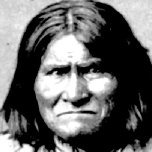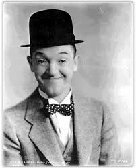A lawn is an area of soil-covered land planted with grasses and other durable plants such as clover which are maintained at a short height with a lawnmower (or sometimes grazing animals) and used for aesthetic and recreational purposes. Lawns are usually composed only of grass species, subject to weed and pest control, maintained in a green color (e.g., by watering), and are regularly mowed to ensure an acceptable length. Lawns are used around houses, apartments, commercial buildings and offices. Many city parks also have large lawn areas. In recreational contexts, the specialized names turf, pitch, field or green may be used, depending on the sport and the continent.
The term "lawn", referring to a managed grass space, dates to at least than the 16th century. Tied to suburban expansion and the creation of the household aesthetic, the lawn is an important aspect of the interaction between the natural environment and the constructed urban and suburban space. In many suburban areas, there are bylaws in place requiring houses to have lawns and requiring the proper maintenance of these lawns. In some jurisdictions where there are water shortages, local government authorities are encouraging alternatives to lawns to reduce water use.
Lawns may have originated as grassed enclosures within early medieval settlements used for communal grazing of livestock, as distinct from fields reserved for agriculture. The word "laune" is first attested in 1540, and is likely related to the Celtic Brythonic word lan/llan/laun, which has the meaning of enclosure, often in relation to a place of worship.
In medieval Europe, open expanses of low grasses became valued among the aristocracy because they allowed those inside an enclosed fence or castle to view those approaching.
Lawns became popular with the aristocracy in northern Europe from the Middle Ages onward. The early lawns were not always distinguishable from pasture fields. The damp climate of maritime Western Europe in the north made lawns possible to grow and manage. They were not a part of gardens in other regions and cultures of the world until contemporary influence.
The origins of the popularity of contemporary lawns comes from 18th century trends replicating the romantic aestheticism of grassy pastoralism from Italian landscape paintings.
Before the invention of mowing machines in 1830, lawns were managed very differently. They were an element of wealthy estates and manor houses, and in some places were maintained by the labor-intensive methods of scything and shearing. In most situations, they were also pasture land maintained through grazing by sheep or other livestock. Areas of grass grazed regularly by rabbits, horses or sheep over a long period often form a very low, tight sward similar to a modern lawn. This was the original meaning of the word "lawn" care, and the term can still be found in place names. Some forest areas where extensive grazing is practiced still have these seminatural lawns. For example, in the New Forest, England, such grazed areas are common, and are known as lawns, for example Balmer Lawn. Lawns similar to those of today first appeared in France and England in the 1700s when André Le Nôtre designed the gardens of Versailles that included a small area of grass called the tapis vert, or "green carpet".
^
A high school principal caring for the school lawn; from a 1916–1917 yearbook in Sturgeon Bay, Wisconsin.
If you want to read a whole lot more, go here:
https://en.wikipedia.org/wiki/Lawn
Mom's Go-To Weeknight Goulash is super easy and budget-friendly, making it a great weeknight dinner recipe! This family-friendly dinner is made with ground beef, elbow macaroni, a couple of veggies and your family's favorite spaghetti sauce. Everything cooks together in one skillet, and, right before it's served, it's topped with some yummy cheese. The results are delicious!
- 1/2 pound elbow macaroni
- 1 1/2 pounds ground beef
- 1/2 green bell pepper, chopped
- 1/2 cup chopped onion
- 1 (26-ounce) jar spaghetti sauce
- 1 teaspoon garlic powder
- 1/2 teaspoon salt
- 1/2 teaspoon black pepper
- 1 cup (4 ounces) shredded Colby-Jack cheese
- Cook macaroni according to package directions; drain and set aside.
- Meanwhile, in a large skillet over high heat, brown beef, bell pepper, and onion 6 to 8 minutes, stirring until meat crumbles and is no longer pink. Drain and return to skillet.
- Add macaroni, spaghetti sauce, garlic powder, salt, and pepper; mix well. Reduce heat to medium-low and cook 5 to 7 minutes or until heated through. Sprinkle with cheese and heat 1 more minute, or until cheese is melted.

1970 – Phil Mickelson, American golfer
Nursing assistants work in hospitals and nursing homes alike, performing everyday living tasks for the elderly, chronically ill, or rehabilitation patients who cannot care for themselves. Of course, nursing assistants require in-depth training to gain the necessary qualifications to cover a wide scope of responsibilities. The American Red Cross, as well as other providers, provide classes to study for nursing assistants. Although states may distribute CNA certification exams, their certification follows a standard set of qualifications created by the government.
Career Nursing Assistants also play a host of roles in the lives of residents in nursing homes, hospitals, and long-term care facilities. Amazingly, they often assist people to remain independent in their own homes for as long as possible. In addition, a CNA provides essential support for patient needs. This includes promoting mental, physical, emotional, social, and spiritual well-being, too.








